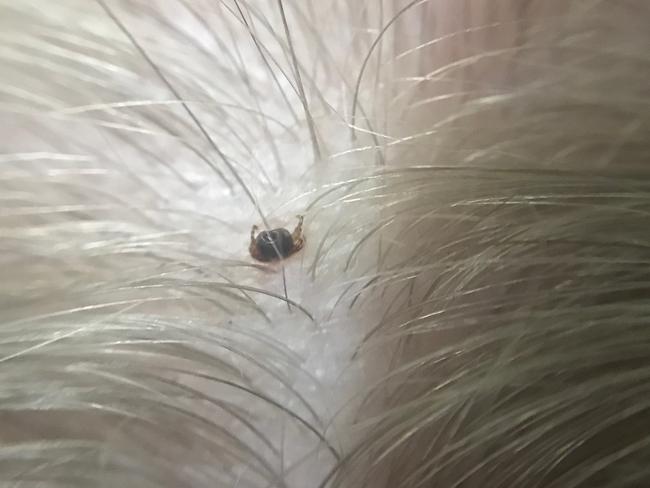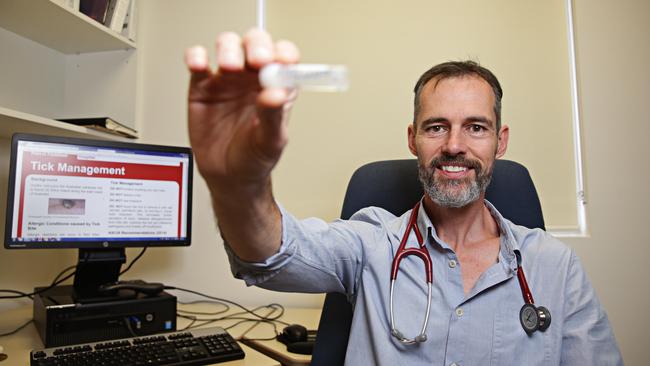Northern beaches tick research could help prevent tick-borne diseases and allergies
Newly published research into how best to remove a tick could help prevent humans from developing life-debilitating diseases and potentially fatal allergies.
- ‘How a tick bite left me like a zombie’
- ‘My tongue and eyes turned black’
- New study could reveal mystery of deadly ticks
Groundbreaking research conducted at Mona Vale Hospital into how best to remove ticks has been published in a respected journal and could help prevent humans developing potentially fatal allergies and illnesses.
One of the key players, former Mona Vale Hospital Emergency Director Dr Andy Ratchford, said the research will help change clinical practice worldwide.
The evidence has also been sent to the Department of Health and NSW Ambulance to encourage them to change their advice on tick removal.

“This research is massive,” said Dr Ratchford, now Emergency Director at Northern Beaches Hospital.
“This is the first published study looking at how to remove a tick correctly in humans.
“Everyone should take note.”
The study analysed patients that arrived Mona Vale Hospital’s Emergency Department over a six-month period in 2016 and has been published in the journal Asia Pacific Allergy.

The aim was to see which tick removal method was best for avoiding a potentially fatal anaphylactic reaction or minimising harmful toxins and bacteria being transferred from tick to human.
More than 1000 people on the northern beaches are believed to have developed a mammalian meat allergy following a tick bite, while others have life-debilitating illnesses caused by ticks.
The study found that using Wart-Off Freeze or Lyclear Scabies Cream on the tick before removal with hospital-style fine tipped tweezers at the mouth of the tick was the best option.
Leading professionals on the northern beaches have been using this method for some time, and phrases like, “freeze it, don’t squeeze it” and “household tweezers are tick squeezers” are being used to help get the message across.

The study looked at 121 patients who presented at emergency.
Out of those 61, of which 28 knew there were tick hypersensitive, had ticks killed using Wart-Off Freeze or Lyclear Scabies Cream before removal with fine tipped forceps or Tick Twister.
Three patients, or five per cent of the 61, had allergic reactions, none anaphylactic.
Two of those patients were known tick hypersensitive and suffered a reaction during the tick killing process, while the third had a particularly embedded tick.
There were 50 patients who arrived at the hospital with the tick already removed, none using tweezers or a Tick Twister with 43, or 86 per cent, experiencing allergic reactions, two anaphylactic. Dr Ratchford said most of this group had used household tweezers, which tend not to be fine tipped, but blunt.
Five patients suffered allergic reactions before arriving, despite no attempt to remove or kill, although it is likely the ticks had been disturbed by some other method.
Five other patients had ticks removed in the Emergency Department, with three refusing killing and had no reaction and two who had ticks on eyelids so were unable to use a freeze spray or use cream, both had allergic reactions after removal, one of those patients had a known tick hypersensitivity.


